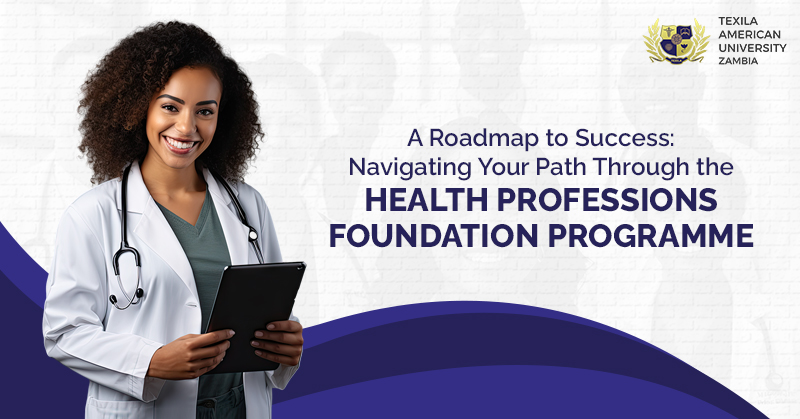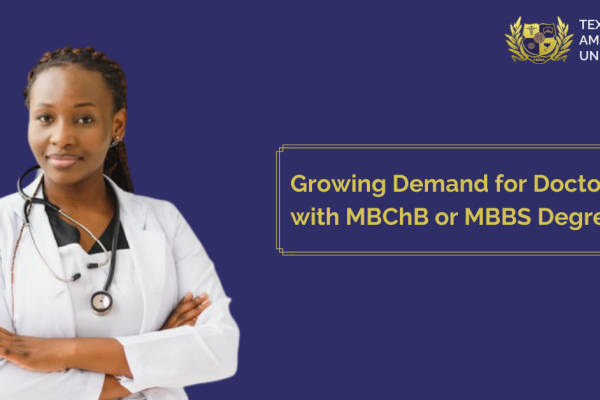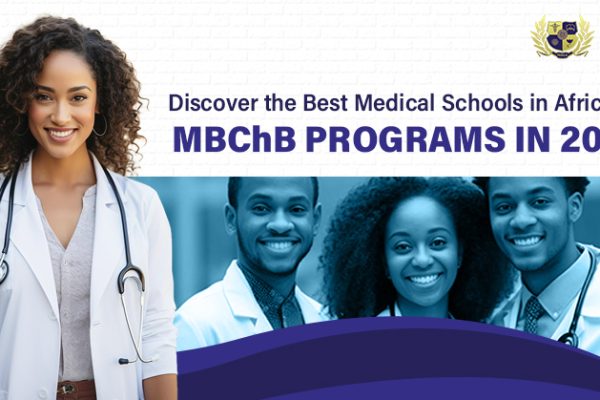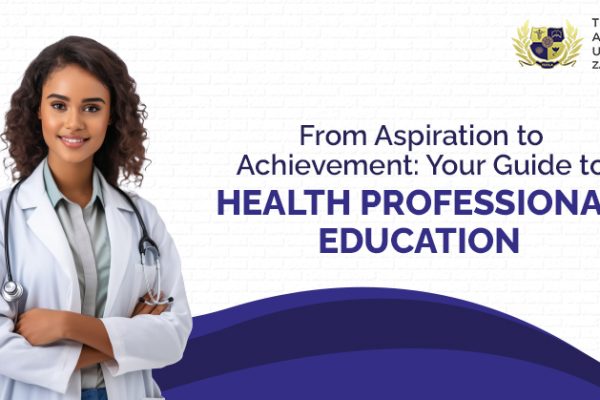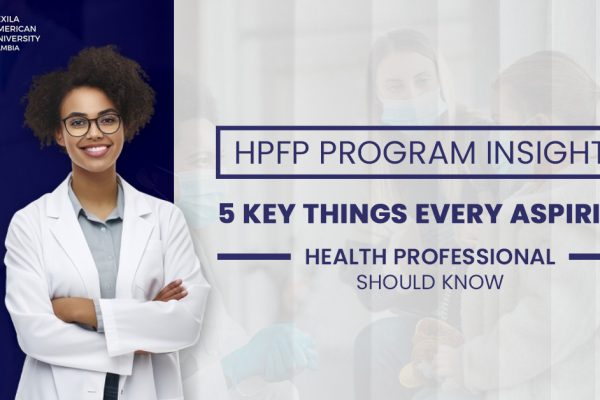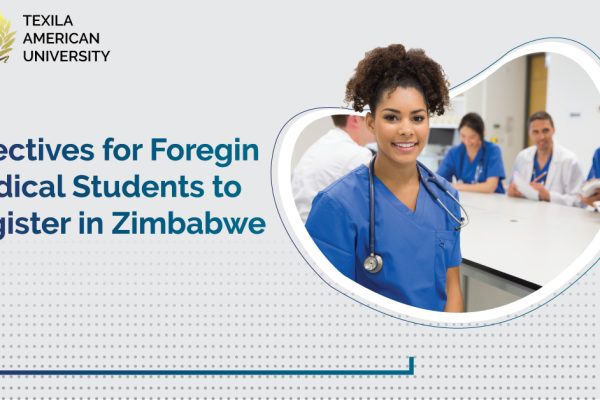|
Tired of Reading? Please listen to the blog
|
Blog Summary
This blog addresses five common questions regarding the Health Professions Foundation Programme. From understanding entry requirements to navigating pre-med courses, we offer insights to help aspiring healthcare professionals chart their path to success. We provide a comprehensive overview of this transformative journey in healthcare education by delving into crucial components, strategies for success, and avenues for professional development.
- I. Introduction
- II. Understanding the Health Professions Foundation Programme
- III. Preparing for Health Professions Education
- IV. Building a Solid Foundation
- V. Navigating Through the Health Professions Foundation Programme
- VI. Overcoming Challenges and Roadblocks
- VII. Looking Ahead: Pursuing Health Professions Education
- VIII. Conclusion
- FAQs
I. Introduction
Starting a career in healthcare demands a solid starting point, and that’s where the Health Professions Foundation Programme comes in. Starting a career in healthcare is increasingly vital, with the U.S. Bureau of Labor Statistics projecting a 15% growth in healthcare occupations from 2019 to 2029, adding about 2.4 million new jobs. In this guide, we’ll explore the ins and outs of the programme, answering some of the most pressing questions and providing valuable advice. Whether you’re curious about entry requirements or need guidance on pre-med courses, we aim to equip you with the knowledge and tools necessary to thrive in health professions education and beyond.
A. Definition of Health Professions Foundation Programme
The Health Professions Foundation Programme serves as a preparatory phase for individuals aspiring to pursue careers in healthcare. The World Health Organization reports a global shortage of healthcare workers, estimating a deficit of 18 million by 2030, underscoring the critical need for well-prepared professionals. It encompasses a structured curriculum designed to equip students with foundational knowledge, skills, and attitudes essential for success in health professions education.
B. Importance of a Strong Foundation in Health Professions Education
A robust foundation is paramount in health professions education, laying the groundwork for students to excel academically, clinically, and professionally. The Health Professions Foundation Programme plays a pivotal role in cultivating competent, compassionate, and ethical healthcare professionals poised to address the evolving needs of society.
C. Overview of the Roadmap
This roadmap delineates the critical components of the Health Professions Foundation Programme, offering insights and strategies for successfully navigating its complexities. From understanding entry requirements to overcoming challenges and envisioning future pathways, this guide aims to empower aspiring healthcare professionals on their journey towards excellence.
II. Understanding the Health Professions Foundation Programme
A. Definition and Scope
The Health Professions Foundation Programme encompasses a comprehensive curriculum spanning core sciences, clinical skills development, and professionalism. It aims to foster a holistic understanding of healthcare principles and practices, preparing students for further studies in health professions education.
B. Goals and Objectives
The overarching goals of the Health Professions Foundation Programme include:
- Cultivating proficiency in foundational sciences.
- Honing clinical competencies.
- Instilling professionalism and ethical values.
- Fostering a commitment to lifelong learning and service.
C. Key Components and Curriculum
The Health Professions Foundation Programme curriculum comprises modules in biology, chemistry, physics, anatomy, physiology, and biochemistry, among others. Practical sessions, simulated clinical experiences, and interprofessional education initiatives augment theoretical learning, providing students a comprehensive understanding of healthcare delivery.
D. Importance in Preparing for Health Professional Education
The Health Professions Foundation Programme serves as a bridge between secondary education and higher studies in healthcare. A solid grounding in foundational concepts and skills equips students with the requisite knowledge and competencies to thrive in health professional degree programs.
III. Preparing for Health Professions Education
A. Exploring Pre-Med Courses in Zambia
- Overview of Pre-Med Courses
Pre-med courses in Zambia encompass a spectrum of disciplines, including biology, chemistry, physics, and mathematics. These courses aim to provide students with a strong foundation in the sciences, preparing them for further studies in healthcare.
- Availability and Accreditation in Zambia
Various educational institutions in Zambia offer pre-med courses, ranging from universities to specialized pre-medical colleges. Accreditation ensures that these programs meet stringent standards of quality and rigour, ensuring the competence and preparedness of students for health professions education.
B. Understanding MBChB Degree Entry Requirements
- Academic Prerequisites
The MBChB degree, a prominent medical qualification, entails fulfilling specific academic prerequisites, including high school qualifications in science subjects. Meeting these requirements demonstrates a candidate’s academic aptitude and readiness for medical studies. - Extracurricular and Volunteer Experiences
In addition to academic qualifications, demonstrating extracurricular involvements, volunteer experiences, and a commitment to community service are valued during the MBChB degree admission process. With the demand for healthcare professionals on the rise, it’s crucial to understand the entry requirements, as highlighted by the projections of the U.S. Bureau of Labor Statistics. These experiences showcase a candidate’s leadership, teamwork, and altruism, attributes essential for success in healthcare.
C. Navigating Pre-Med Bachelor’s Degree Programs
- Curriculum and Coursework
Pre-med bachelor’s degree programs offer a comprehensive curriculum encompassing foundational sciences, humanities, and social sciences. This interdisciplinary approach fosters a well-rounded understanding of healthcare and prepares students for the rigours of health professions education. - Importance in Building a Strong Foundation
Embarking on a pre-med bachelor’s degree program lays a solid foundation for aspiring healthcare professionals, equipping them with critical thinking skills, communication abilities, and cultural competence. This foundational knowledge is a springboard for success in health professions education and clinical practice.
IV. Building a Solid Foundation
A. Key Components of Health Professions Education Courses
- Core Sciences
Core sciences encompass anatomy, physiology, pharmacology, and microbiology, forming the cornerstone of health professions education. Proficiency in these subjects is essential for understanding the biological mechanisms underpinning health and disease. - Clinical Skills Development
Clinical skills development involves acquiring competencies in history-taking, physical examination, diagnostic reasoning, and patient communication. Simulation-based training, standardized patient encounters, and clinical rotations facilitate the acquisition and refinement of these essential skills. - Professionalism and Ethics
Professionalism and ethics are integral aspects of healthcare practice, encompassing principles of integrity, compassion, respect, and accountability. Ethical dilemmas, cultural competency training, and reflective practice sessions cultivate a sense of moral responsibility and ethical decision-making among aspiring healthcare professionals. B. Strategies for Success in the Health Professions Foundation Programme - Effective Study Techniques
Study strategies that work, such as idea mapping, spaced repetition, and active learning, improve knowledge retention and comprehension of the subject matter. Adopting a growth mindset, seeking clarification when needed, and engaging in collaborative learning foster academic success in the Health Professions Foundation Programme. - Time Management Skills
Time management skills are essential for balancing academic commitments, clinical experiences, and extracurricular activities. Prioritizing tasks, setting realistic goals, and adhering to a structured study schedule optimize productivity and minimize stress during the programme. - Utilizing Support Resources
Utilizing support resources, including academic advisors, faculty mentors, tutoring services, and peer support networks, enhances students’ academic and personal development. Seeking assistance proactively, attending review sessions, and participating in study groups foster a collaborative learning environment conducive to success.
V. Navigating Through the Health Professions Foundation Programme
- Academic Advising and Mentorship
Academic advising and mentorship provide invaluable guidance and support throughout the Health Professions Foundation Programme. Advisors assist students in course selection, educational planning, and career exploration, while mentors offer insights, encouragement, and professional networking opportunities. - Engaging in Research Opportunities
Participation in research opportunities augments theoretical knowledge with practical insights, fostering critical thinking, problem-solving, and evidence-based practice skills. Collaborating with faculty mentors, conducting literature reviews, and presenting findings at conferences enrich students’ academic and professional portfolios. - Participating in Clinical Experiences and Internships
Clinical experiences and internships offer firsthand exposure to healthcare settings, permitting students to apply theoretical knowledge in real-world contexts. Shadowing healthcare professionals, volunteering in clinics, and participating in patient care activities enhance clinical skills, interprofessional communication, and cultural competence. - Involvement in Extracurricular Activities and Leadership Roles
Active participation in extracurricular activities and leadership positions enrich students’ personal and professional development. Joining student organizations, participating in community service initiatives, and assuming leadership positions foster teamwork, communication, and organizational skills essential for healthcare practice.
VI. Overcoming Challenges and Roadblocks
- Addressing Academic Difficulties
Navigating academic difficulties requires a proactive approach, resilience, and willingness to seek assistance. Utilizing academic support services, attending review sessions, and collaborating with peers facilitate comprehension and mastery of challenging concepts. - Managing Stress and Burnout
The demands of the Health Professions Foundation Programme can precipitate stress and burnout among students. Navigating academic difficulties and managing stress are common challenges, but with the increasing demand for healthcare professionals, resilience is key, as highlighted by the World Health Organization’s findings. Setting priorities for self-care, maintaining a healthy work-life balance, and engaging in stress-relieving activities mitigate burnout and promote overall well-being. - Seeking Support from Peers, Mentors, and Counselors
Seeking peer, mentor, and counsellor support fosters a sense of belonging and resilience during challenging times. Sharing experiences, seeking advice, and accessing counselling services empower students to navigate obstacles and persevere towards their goals.
VII. Looking Ahead: Pursuing Health Professions Education
A. Understanding Pathways to Health Professional Degrees
- MBChB Degree and Other Options
The MBChB degree represents a traditional pathway to becoming a medical doctor, encompassing rigorous academic coursework, clinical rotations, and licensing examinations. However, other pathways, such as nursing, pharmacy, dentistry, and allied health professions, offer diverse specialization and career advancement opportunities. - Postgraduate Studies and Specializations
Postgraduate studies, including residency training, fellowships, and advanced practice programmes, provide avenues for specialization and professional advancement. Pursuing postgraduate education enables healthcare professionals to develop expertise in specific areas of interest and contribute to advancements in healthcare practice and research.
B. Importance of Continued Learning and Professional Development
Continued learning and professional development are integral to maintaining competence and excellence in healthcare practice. Continuing education initiatives, professional conferences, and certification programmes facilitate lifelong learning, skill refinement, and adaptation to evolving healthcare trends and technologies.
C. Setting Goals and Creating a Personalized Action Plan
Setting clear goals and creating a personalized action plan empower students to chart their academic and career trajectories. Establishing short-term objectives, identifying resources, and soliciting mentor feedback facilitate progress towards achieving academic and professional aspirations.
VIII. Conclusion
A. Recap of Key Points
The Health Professions Foundation Programme is a pivotal phase in the journey towards a fulfilling healthcare career. A solid foundation in core sciences, clinical skills, and professionalism equips students with the requisite knowledge and competencies to excel in health professions education and practice. The importance of a robust foundation in healthcare education cannot be overstated, especially considering the projected growth in healthcare occupations by the U.S. Bureau of Labor Statistics.
B. Encouragement for Future Health Professionals
The journey ahead may be challenging for aspiring healthcare professionals but also gratifying. Embrace the growth opportunities, cultivate resilience in the face of adversity, and remain steadfast in your commitment to serving others with compassion and integrity.
C. Importance of Persistence and Resilience in Achieving Success
Success in health professions education and practice requires persistence, resilience, and a lifelong commitment to learning and growth. Aspiring healthcare professionals must keep in mind the global shortage of healthcare workers, as reported by the World Health Organization, as they embark on their journey towards fulfilling careers. Embrace setbacks as opportunities for learning, seek support from mentors and peers, and remember that each challenge triumph brings you one step closer to realizing your dreams.
The Health Professions Foundation Programme lays the groundwork for a lifetime of learning, service, and professional fulfilment. By navigating through its intricacies with diligence, determination, and a spirit of inquiry, aspiring healthcare professionals can embark on a transformative journey towards excellence in healthcare.

